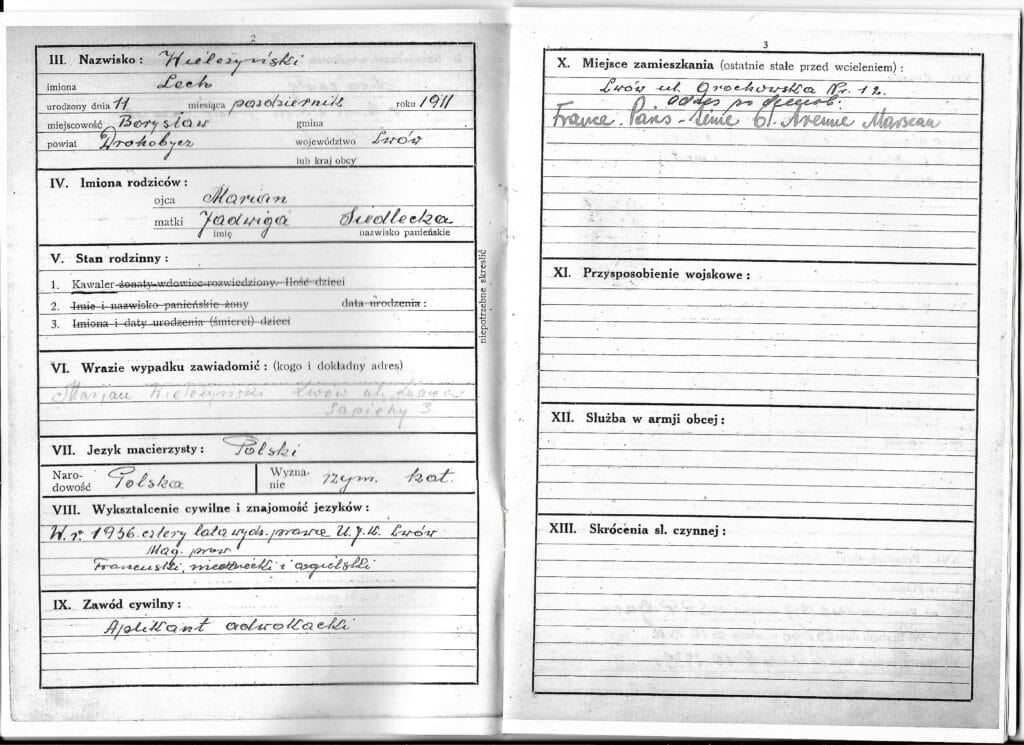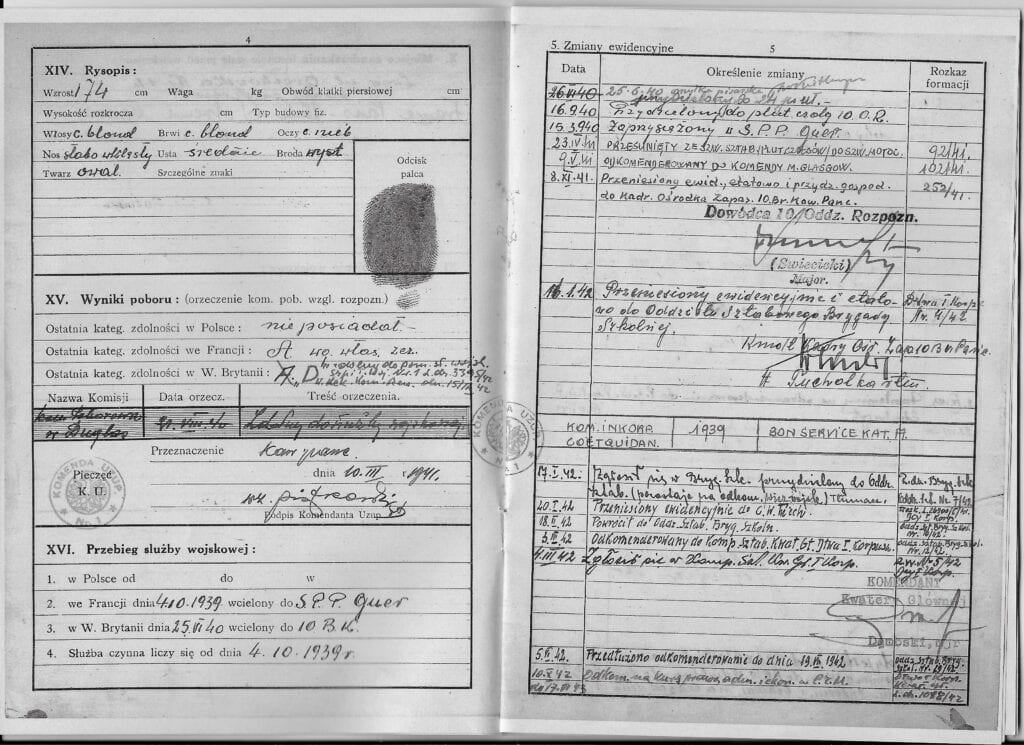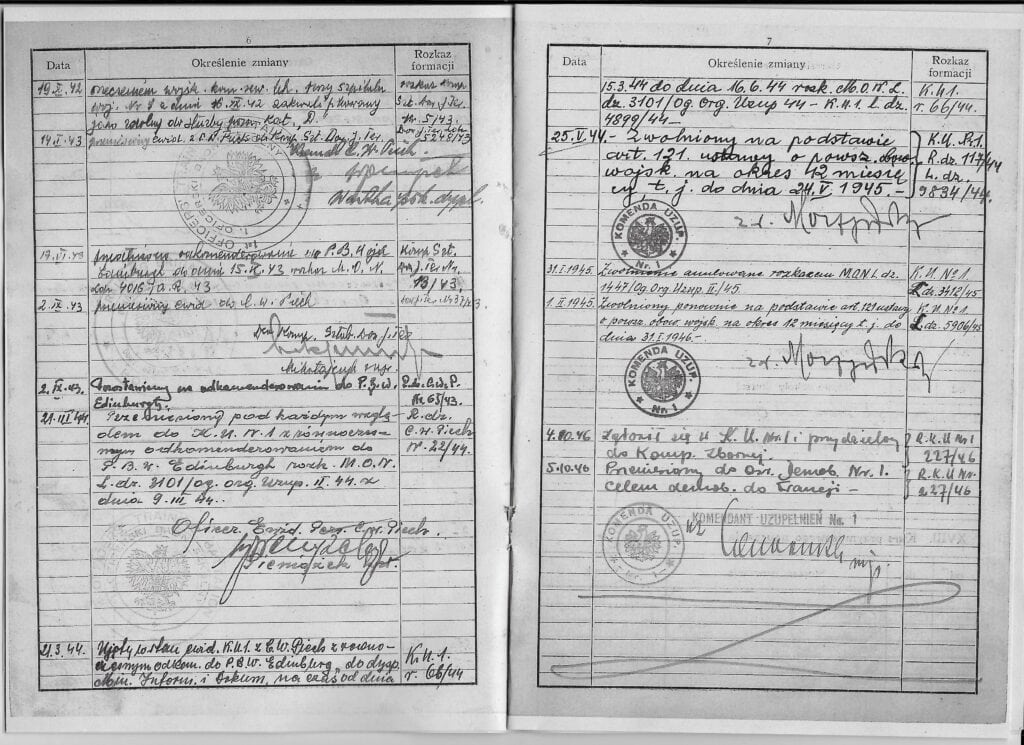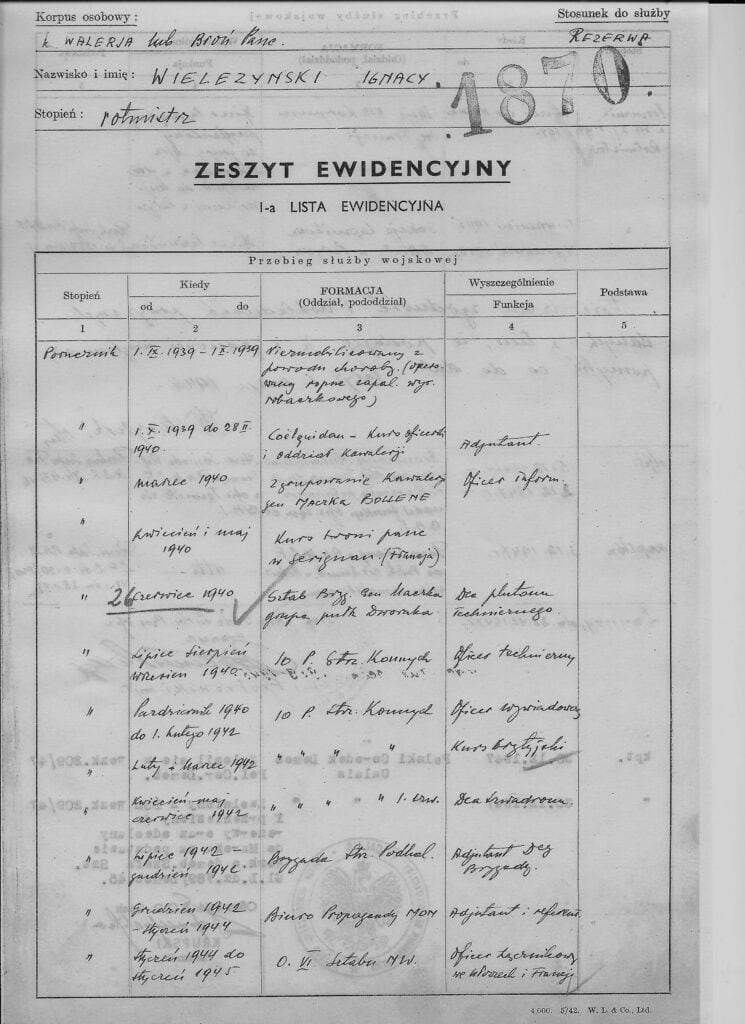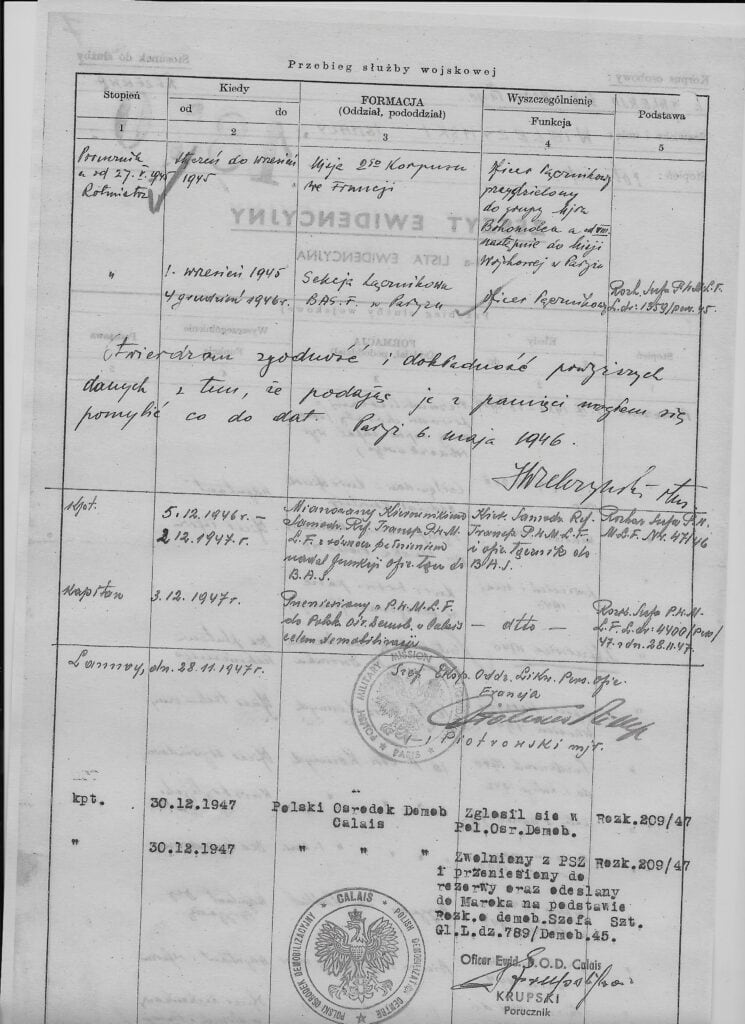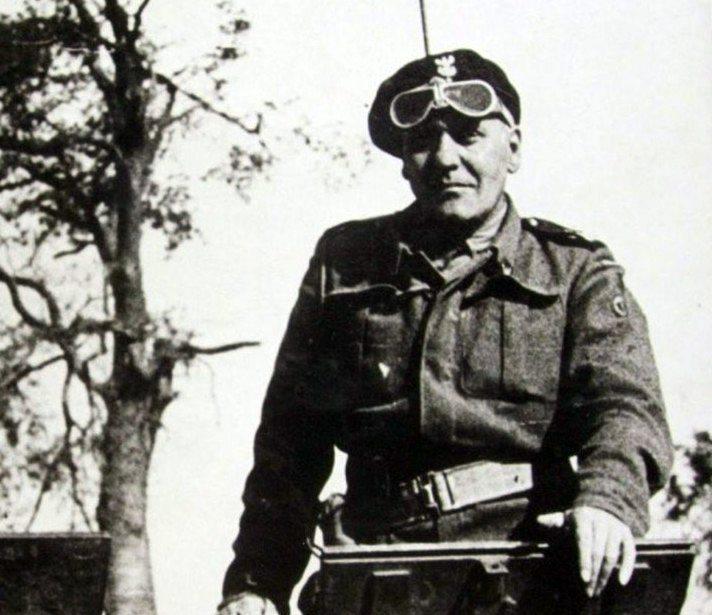
“The Polish soldier fights for the freedom of all nations but dies only for Poland”
The eldest sons of Marian Wielezynski, Leszek and Ignacy, fled Poland in September 1939 and soon joined “La 10e Brigade de cavalerie blindée polonaise” in the camp of Coëtquidan at Guer, France, where they trained under General Maczek who, after his heroic campaign of Poland, was re-organizing in France his brigade, the so-called “Black Brigade”, to continue fighting the Nazis.
General Maczek was born near Lvov in 1892 and began his military career as an officer in the Austrian Army, fighting on the Italian front in 1914. At the end of World War I, the young officer offered his services to the newly formed Polish Army. Soon, his military talents became evident in the battle for the protection of the city of Lvov, under Ukrainian siege in 1918, and in the struggle of the young Polish Republic to stop the invading armies of Communist Russia in 1920, which was defeated in the fall of 1921.
In October 1939, upon learning that Polish forces were being organized on French soil, Maczek escaped Poland after heroic fights against the German and Soviet invaders and reported to the President General Wladislaw Sikorski, commander of the Polish forces in Paris who promoted him to the rank of Brigadier General and placed him in charge of training many Polish troops.
After France fell to the Nazis, a great number of Polish soldiers joined the allied forces in Great Britain. When, during the course of the war, Mascek heard that Leszek Wielezynski had been forced to flee Poland on the same day he was to take the bar exam in Lvov, he authorized him to go to Edinburgh, in Scotland and follow a post graduate course at the University to acquire solid business training in addition to an excellent command of English. Later, in 1945, UNRRA asked Wielezynski to head a refugee camp in Bavaria.
In February 1942, General Maczek was ordered by General Sikorski to form what was going to become the very famous 1st Polish Armored Division. Two years later, in June 1944, Maczek and his division were ready to play a pivotal role in the invasion of Normandy. Polish troops took part in encircling Nazi troops and were credited with closing the Caen-Falaise pocket where fourteen Nazi divisions were trapped and destroyed. After this decisive battle, General Maczek’s division spearheaded the Allied drive across the battlefields of France, Belgium, Holland, and finally Germany. The Division’s “moment of glory” came when its forces captured the German port of Wilhelmshaven and accepted the surrender of the entire garrison, which included some 200 vessels of Hitler’s navy. General Maczek commanded the 1st Polish Armored Division then the 1st Polish Army Corps until the end of the hostilities in Europe.
Although the General, my father, my uncle and thousands of other Polish soldiers sacrificed six years of their lives to free many people from the tyranny of the Nazis, they ended the war with a “Sovietized” Poland that refused to honor them, stripped them of their Polish citizenship, and exiled them.
Fortunately, at the miserable end of his life, the General received some recognition from his country but it was not the case for all those stateless and abandoned soldiers, like my father, who spent the rest of their lives, still in love with their natal Poland, praying for its freedom. The Polish Spirit, never lose hope!
General Stanislaw Maczek died in Scotland on December 11, 1994. To this day, the Wielezynski family is proud to have served under such a great man.
Here are the military documents of Leszek and Ignacy Wielezynski engaged in camp Coëtquidan at Guer (France) in the “10Brigada Kawalerii Pancernej” (10 B.K or “10e Brigade de cavalerie blindée polonaise” previously called the 10th Motorized Cavalry Brigade – the famous “Black Brigade”.
